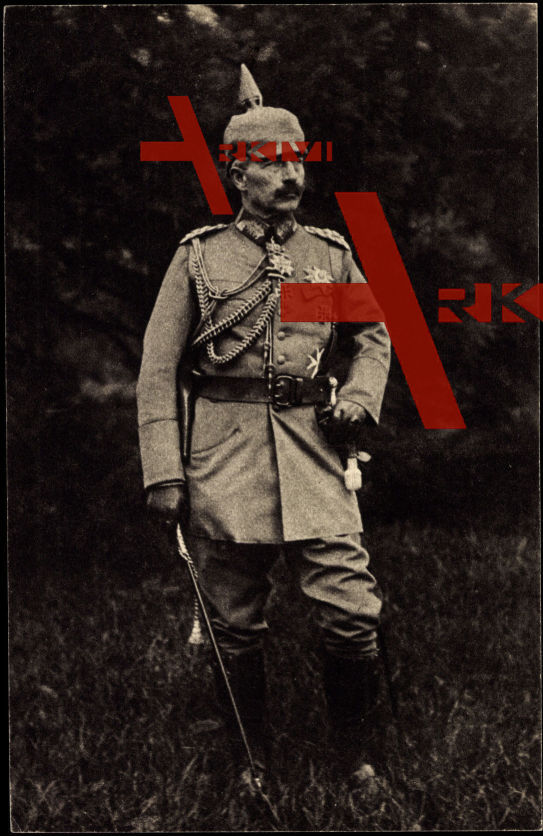
Kaiser Wilhelm II im Felde, Pickelhaube xl
The Pickelhaube (German: [ˈpɪkl̩ˌhaʊ̯bə] ⓘ; pl. Pickelhauben, pronounced [ˈpɪkl̩ˌhaʊ̯bn̩] ⓘ; from German: Pickel, lit. 'point' or 'pickaxe', and Haube , lit. 'bonnet', a general word for "headgear"), also Pickelhelm , is a spiked leather or metal helmet that was worn in the 19th and 20th centuries by Prussian and German soldiers of all ranks, firefighters and police.

Preußen Kostüm Kaiser Wilhelm mit Pickelhaube deluxe für Herren
Kaiser Wilhelm II. meets Theodore Roosevelt in Döberitz. Wednesday at 3:39 PM; Kaiser Wilhelm II;. Cloth helmet covers worn over the pickelhaube. Threads 40 Messages 285. Threads 40 Messages 285. Überzug on dummy helmet. Saturday at 11:49 PM; Tony without Kaiser; Imperial German Regimental Flags.

Kaiser wilhelm on Pinterest Wilhelm ii, Pickelhaube and Zar nikolaus
The Line Pickelhaube. The intent of this page is to show a few examples of leather Pickelhaube worn prior to the end of the German Empire in November 1918. To show one of every pattern for all the contingents in every rank would be impossible and involve hundreds of examples. The variety in the various characteristics such as Wappen (front.

The 'Pickelhaube' A Brief History of WW1 Germany's Iconic Spiked Helmet
And while the pickelhaube will forever be linked to the armies of Kaiser Wilhelm II, the distinctive piece of headgear was enormously popular with a number of nations' armies during the 19 th Century. A reproduction officer's helmet, circa 1914. (Image source: MilitaryHistoryNow.com)
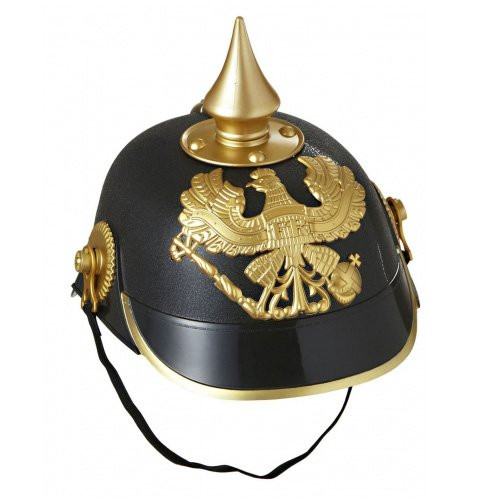
Deutsche Pickelhaube Kaiser Wilhelm
Kaiser Wilhelm II of the German Empire wearing the traditional Prussian Pickelhaube helmet The growing strength of Germany (at the hands of Kaiser Wilhelm II ) caused alarm across Europe, prompting Russia and France to form an alliance in 1893 in a bid to ensure they were strong enough to face any potential military action.
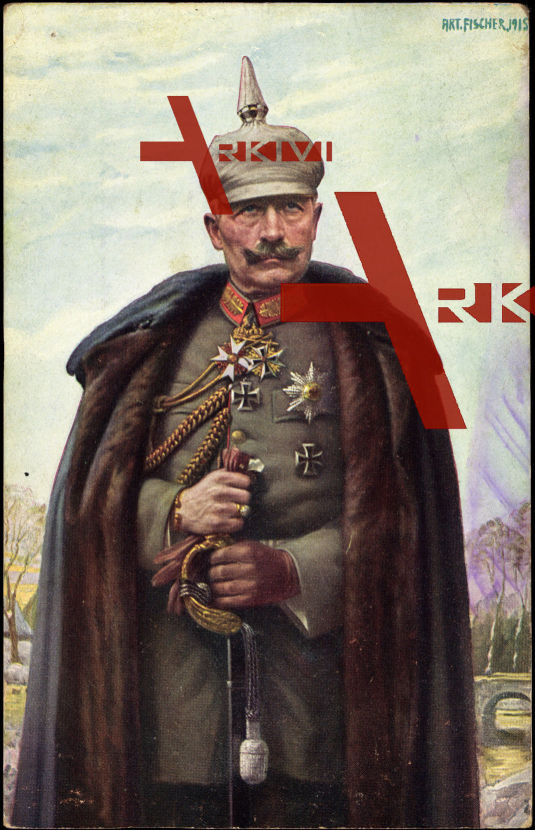
Fischer Art. Kaiser Wilhelm II. mit Pickelhaube, Wohlfahrt xl
For an on-line quick access guide to the different patterns of Imperial German Pickelhaube please refer to the: Kaiser's Bunker Pickelhaube Guide. For ease of navigation, click on the "next" button at the bottom of each page to advance, the "back" button to return to your last viewed page, or you can also utilize the navigation bar to the top of the screen to navigate through the sections.

Kaiser Wilhelm helm Pickelhaube one size
The Kaiser had uniforms of every conceivable regiment, so he must have had a lot of Pickelhaubes. But at least one of them is in the archives of Huis Doorn, in the Netherlands where the Kaiser lived in exile.. See this youtube clip of Boudewijn Buch visiting the curator of Huis Doorn for a tour of the archives, with amongst many many other things one of the Kaiser's Pickelhaubes.
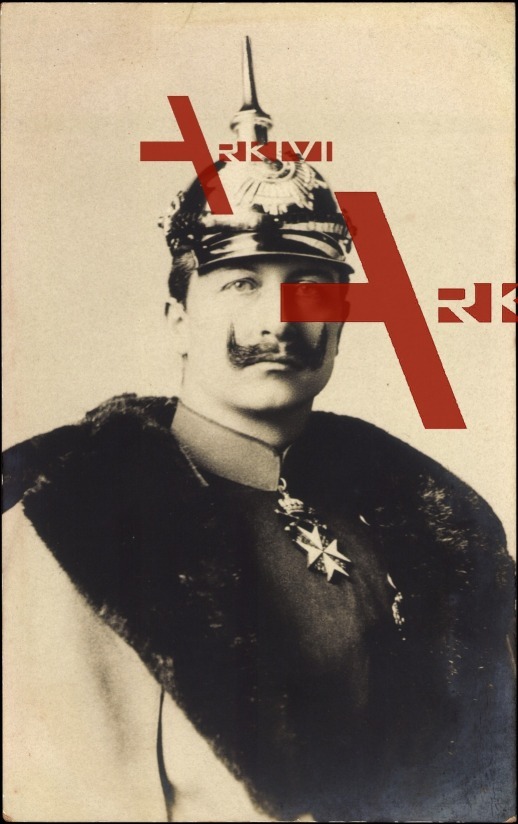
Portrait von Kaiser Wilhelm II. mit Pickelhaube xl
A standard Bavarian line infantry helmet, 1895 model, in rough condition. In 1886, Bavaria adopted the Pickelhaube, the last German State to do so. The kokade on the right side is the German Reich kokade. Black, white, red, were the national colors of Germany. The kokade on the left is the Bavarian Land kokarde.

Halloween Karneval Pickelhaube Kaiser Wilhelm Preuße Polizist Soldat H77 Kaufen bei VK Event
The rarest German helmet of the First World War.
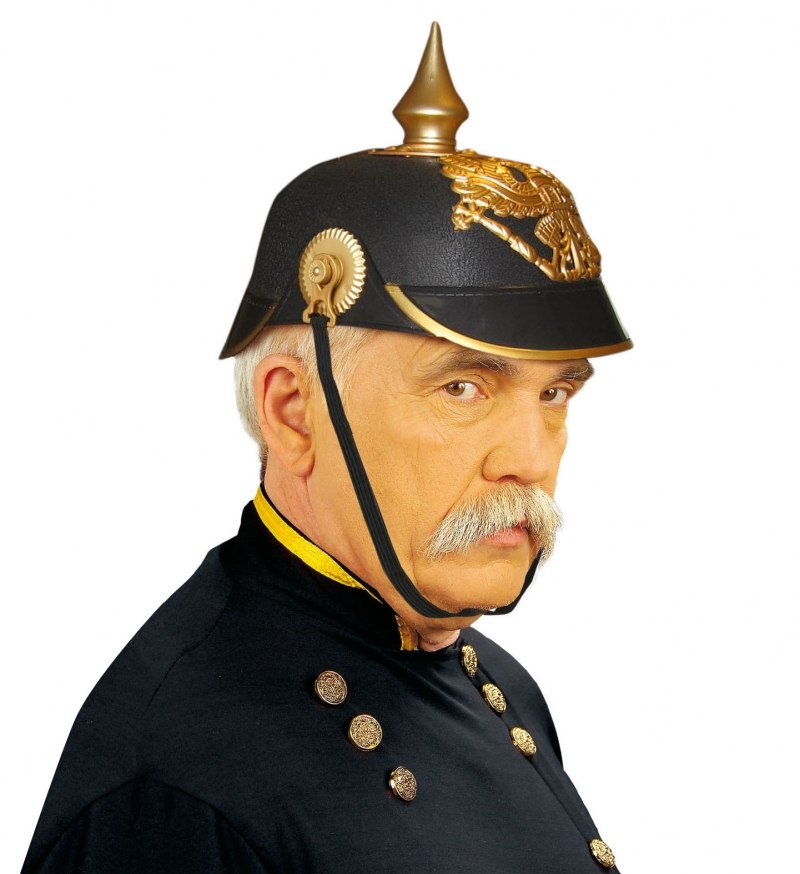
Pickelhaube Massiv Karneval Fasching Kostüm Party
Centenary Medal (Prussia) The Kaiser Wilhelm Memorial Medal also known as the Centenary Medal ( German: Kaiser-Wilhelm-Erinnerungsmedaille Zentenarmedaille) was established on March 22, 1897, by Wilhelm II on the occasion of the 100th Birthday of his grandfather, Emperor Wilhelm I . The medal was awarded by Prussia to state and university.

Pickelhaube Saxon infantry koenigliche sachs Reserve 2 Reserve Grenadier IR101 kaiser
The Pickelhaube became such a popular head dress in the late 1890s that many countries adopted their own version of the spiked helmet. Those countries include Sweden, Norway, Rumania, Denmark, Spain, Portugal, Great Britain, Brazil, Chile, Equator, Peru, Mexico, Duchy of Parma, and the United States.. Kaiser Wilhelm II dearly loved the pomp.
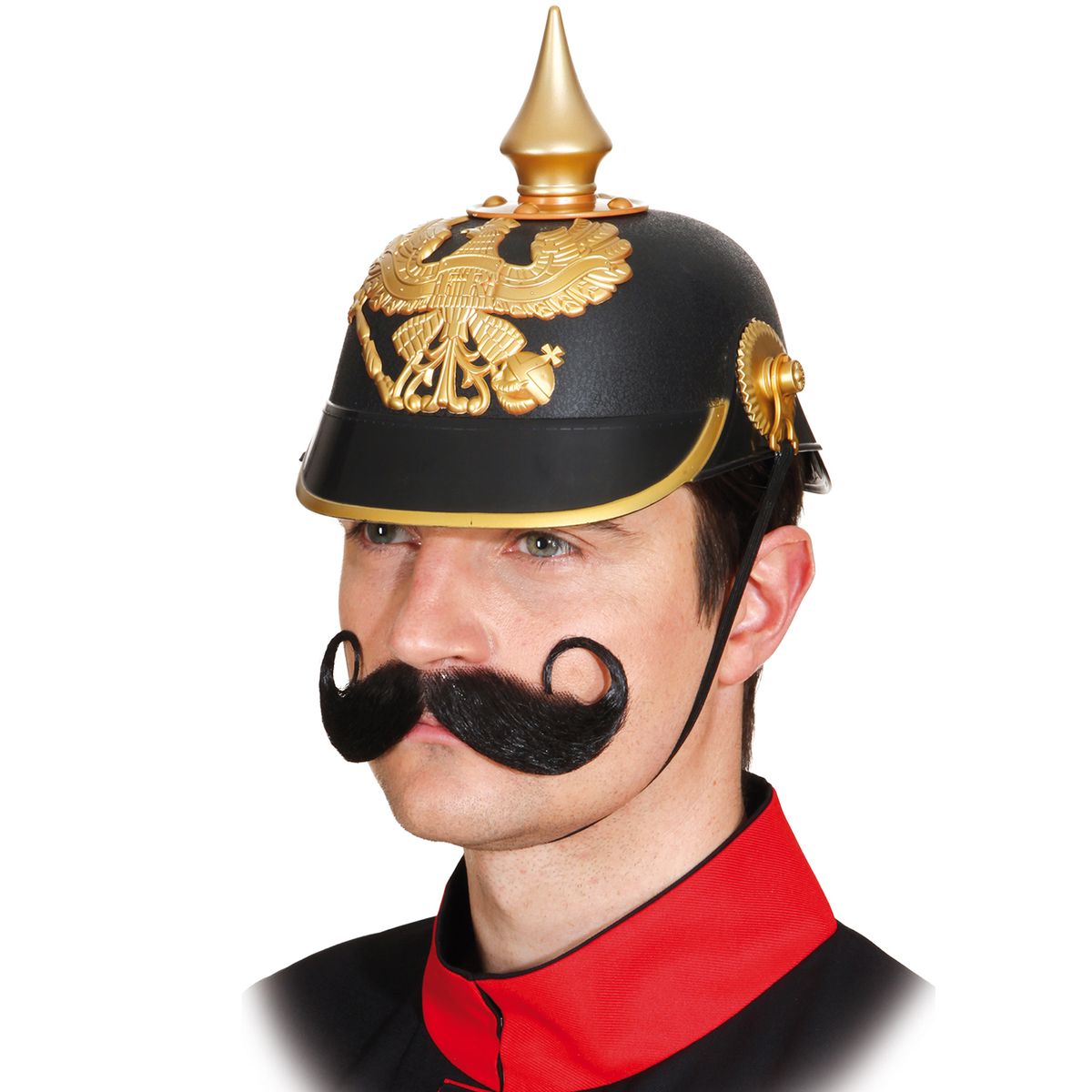
Preußische Pickelhaube Kaiser Wilhelm für Herren KostümZubehör
The Pickelhaube was a favorite of Kaiser Wilhelm II. 376 × 582. Published in.
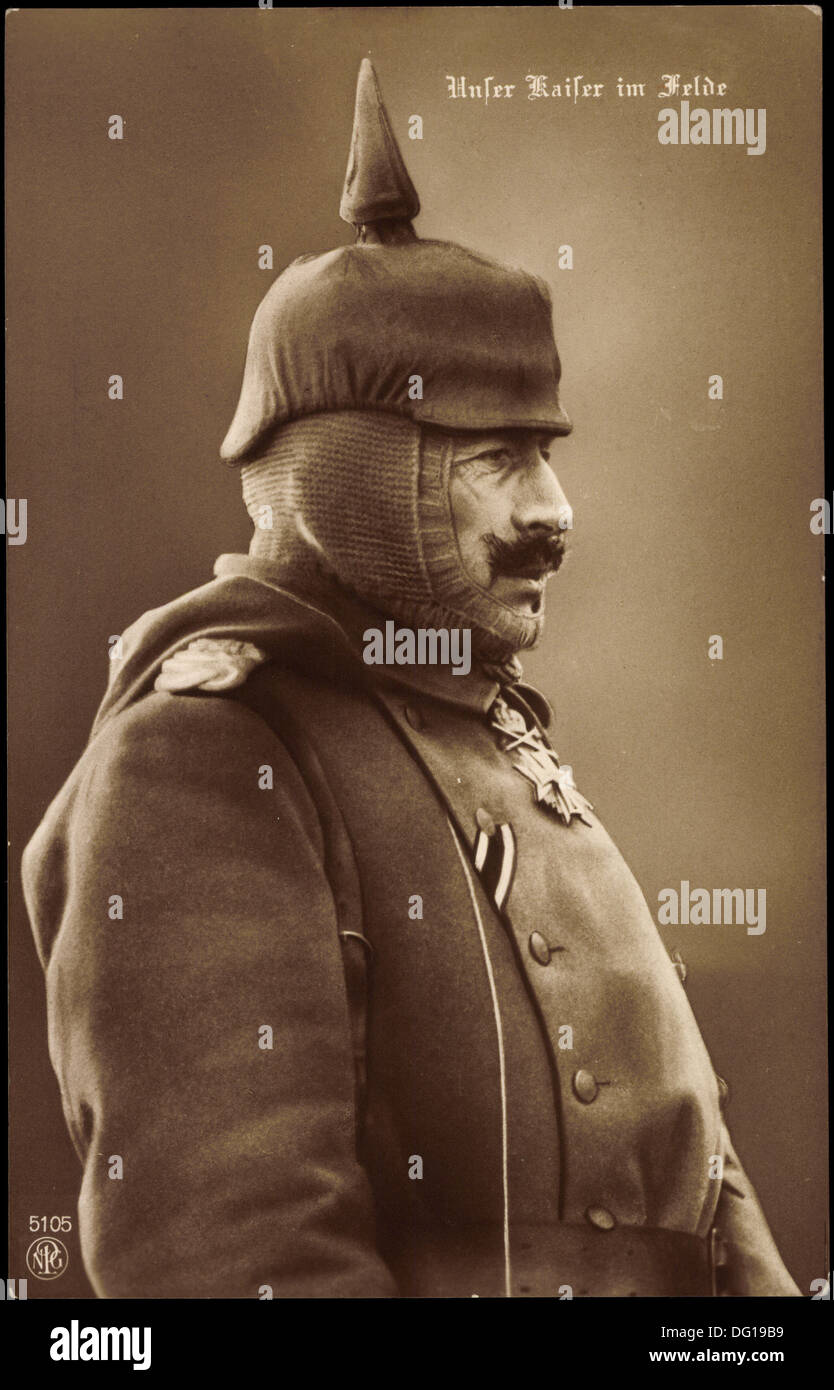
AK Kaiser Wilhelm II. von Preußen Im Felde, Pickelhaube, Maske Stockfoto, Bild 61494925 Alamy
The Pickelhaube, like the Kaiser's mustache when viewed, stands as sort of "a declaration of war," or so said his adversaries and his admirers as well. The sculpture is in pure bronze with a wonderful patina.. Kaiser Wilhelm in the dress uniform of the Gardes du Corps . Spectacular Helmet and Cuirass of the 2nd Garde Regt. of the Gardes.
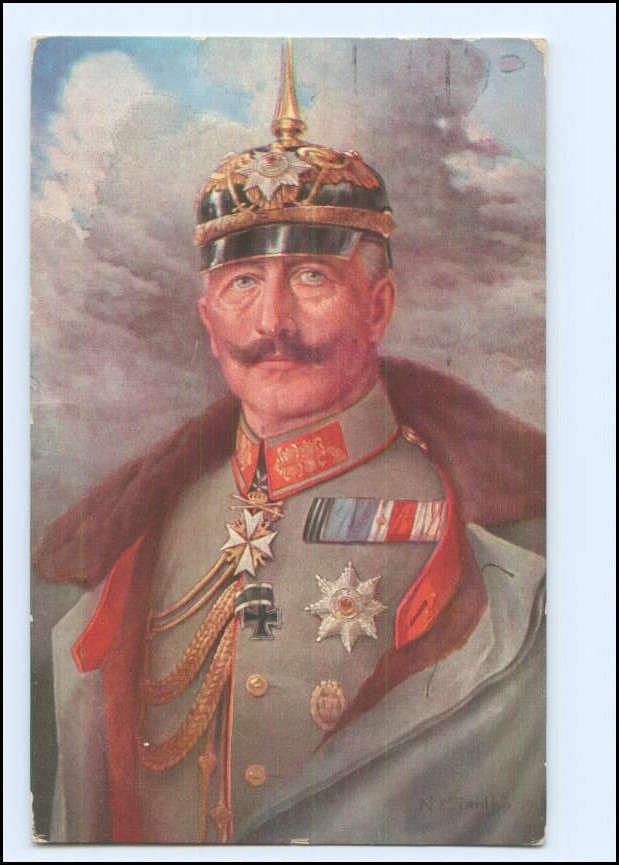
Y20089/ Kaiser Wilhelm mit Pickelhaube und Ehrenzeichen AK 1917 1. Weltkrieg · Martin Bernhard
Kaiser Wilhelm II, August von Mackensen and others wearing Pickelhauben with cloth covers in 1915 Prussian police leather Pickelhaube The Pickelhaube (plural Pickelhauben ; from the old German Pickel = "point" or "pickaxe", and Haube = "bonnet", a general word for headgear), also "Pickelhelm," was a spiked helmet worn in the 19th and 20th centuries by German military , firefighters , and police .

Halloween Karneval Pickelhaube Kaiser Wilhelm Preuße Polizist Soldat H77 Kaufen bei VK Event
Wilhelm II (Friedrich Wilhelm Viktor Albert; 27 January 1859 - 4 June 1941) was the last German Emperor and King of Prussia from 1888 until his abdication in 1918, which marked the end of the German Empire and the House of Hohenzollern's 300-year reign in Prussia and 500-year reign in Brandenburg.. Born during the reign of his granduncle Frederick William IV of Prussia, Wilhelm was the son.

Halloween Karneval Pickelhaube Kaiser Wilhelm Preuße Polizist Soldat H77 Kaufen bei VK Event
(The Pickelhaube was a favorite of Kaiser Wilhelm II. ) Introduced by the Prussian military circa 1843, the Pickelhaube was originally proposed for use by cavalry troops. The helmets, made of pressed leather, were developed as an updated solution to the conical shako hats worn by Prussians during the Napoleonic Wars. Napoleonic-era shakos.